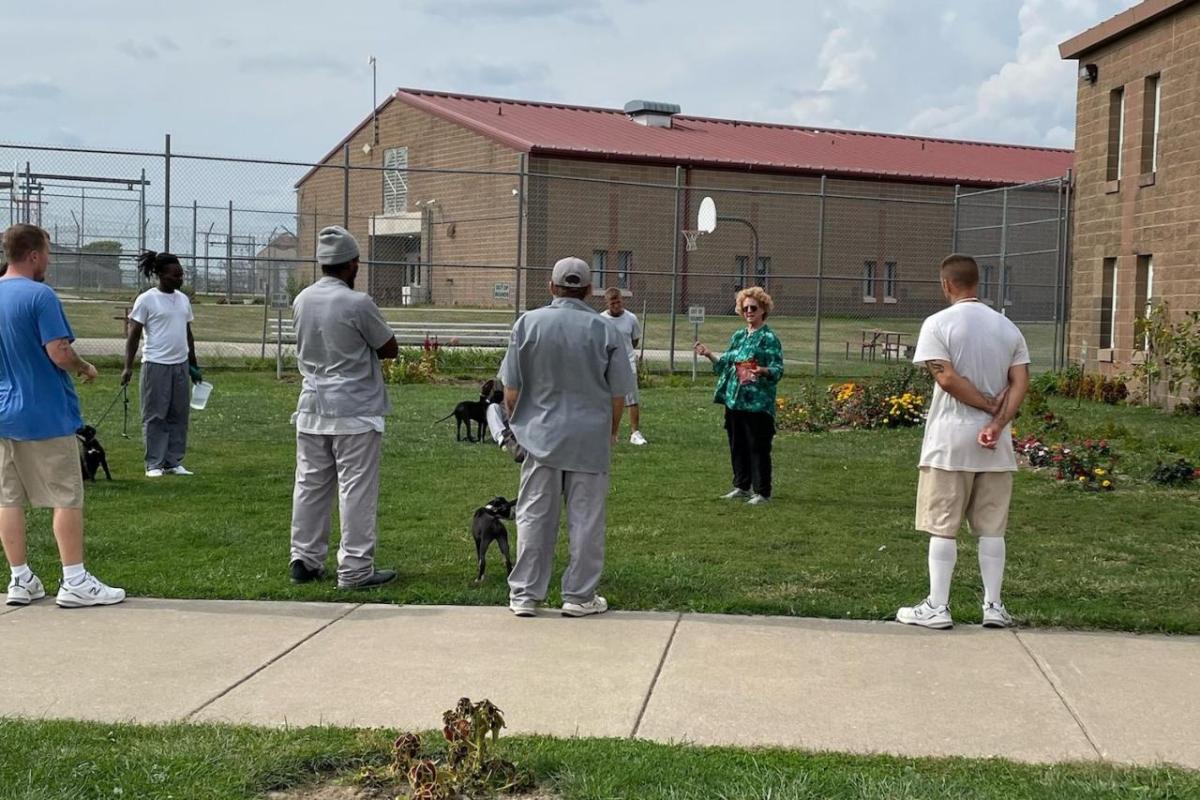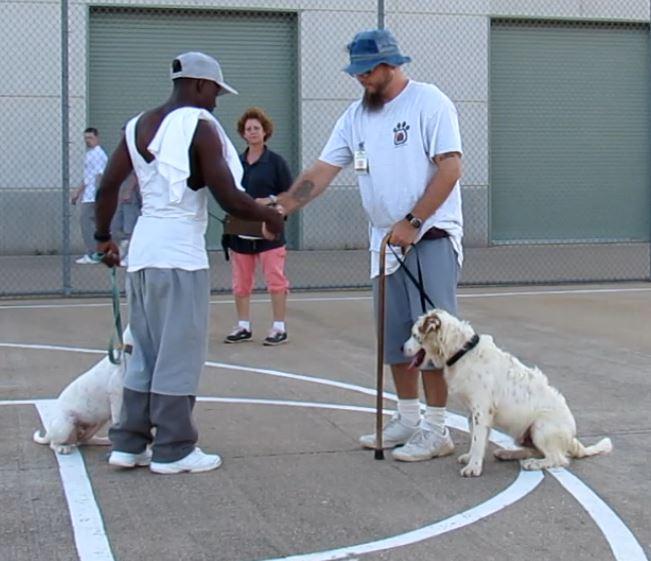‘Puppies for Parole’ Offers a Second Chance for Incarcerated People and Shelter Dogs in Missouri
By Michelle Erdenesanaa
Originally published by TriplePundit
Puppies for Parole recognizes the importance in second chances for all. The program offers incarcerated people in Missouri an opportunity to train and socialize shelter dogs, making them more adoptable. In turn, the program offers participants the therapeutic effects of working with animals, as well as vocational training and the chance to give back to their communities.
The initiative began in 2010 as a partnership between the Missouri Department of Corrections and a network of animal shelters and rescue organizations across the state. Royal Canin, a leader in science-based cat and dog health nutrition and a division of the Mars family of brands, started donating food when packaging manager Michael Newkirk heard about the program and saw a perfect fit for Royal Canin.
Royal Canin, whose U.S. headquarters is located in St. Charles, Missouri, began providing Puppies for Parole with diets from its manufacturing facility in Rolla, Missouri. Newkirk started driving the food to local correctional facilities himself, beginning a more than 13-years-and-counting relationship between Royal Canin and Puppies for Parole.
Making a difference in the lives of people and animals
Around 3.1 million dogs come into U.S. shelters every year, according to the ASPCA. Puppies for Parole offers a helping hand, both to shelter pets and the people who train them.
Puppies for Parole runs in 16 of the 20 state correctional facilities in Missouri, making it one of the largest prison dog programs in the country. The 10-week program, which operates solely through donations and volunteers, has achieved over 95 percent adoption rates. This past summer, Puppies for Parole and Royal Canin celebrated their 7,000th dog to be adopted out of a shelter into a forever home.
The dogs are adopted out of their original shelter after graduating from the 10 weeks of obedience training and socialization. Some dogs are additionally trained to be service animals for veterans with post-traumatic stress disorder or people living with disabilities.
From 2011 to 2023, Royal Canin donated an average 25,000 pounds of Royal Canin and Eukanuba products annually to Puppies for Parole, totaling about 300,000 pounds of food and over 600,000 meals donated.
“We thought, wouldn't it be great if we were [not only] the nutrition, [but also] the education and fun provider?” said Racquel White, vice president of corporate affairs at Royal Canin North America. The company also provides educational materials around pet nutrition and training best practices, as well as toys for the dogs.
Requirements for potential trainers include two years of good behavior, after which they can join a waiting list. Selected participants will join the 10-week program under an apprenticeship with the U.S. Department of Labor. Upon completing the program — which offers formal, on-the-job, and individualized training — participants earn a certificate in animal handling, recognized in all 50 states. Approximately 5,000 individuals in Missouri prisons have participated in the program since its inception in 2010.
“Participants in the program have shared with us that these dogs have made such a huge difference in their lives [by] giving them something to live for,” White said. “We all know the impact of pets. The impact on this particular group of people, however, seems to be exponentially more positive.”
Creating positive pathways for re-entry
Programs like Puppies for Parole can offer incarcerated people pathways to work upon release, which is often difficult to find due to stigmas about people who have served time.
Trey Dawson, a former participant in Puppies for Parole, is among those who continued training dogs after his release from prison. He went on to found the dog training business Backyard K9, which the Columbia, Missouri, community awarded a Gold medal in Pet Training. Backyard K9 is also a nominee for the Missourian Progress Awards for Entrepreneurship, and Dawson has visited multiple Missouri correctional centers to share his story.
“The program also creates a chance for participants to give back to the community,” White said. One trainer told her that “he is able to give these dogs a chance that he may very well never have, which is to go into a home with a family living on the outside, so to speak.”
Learn more about Puppies for Parole here, or click here to see dogs available for adoption through the program.
This article series is sponsored by Mars and produced by the TriplePundit editorial team.
Image courtesy of Puppies for Parole



